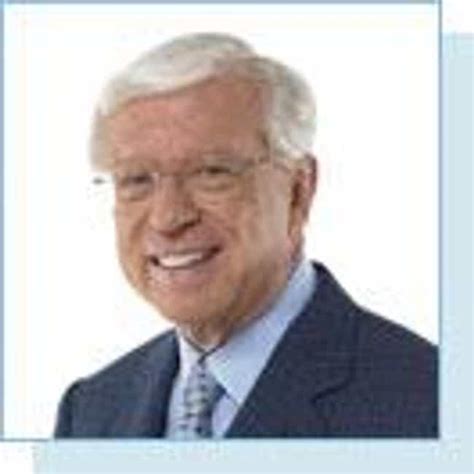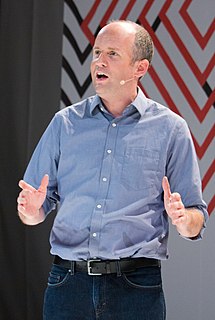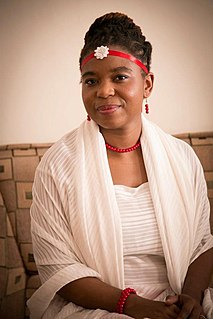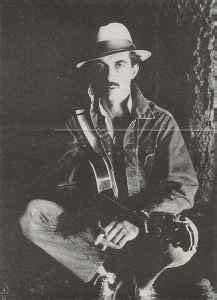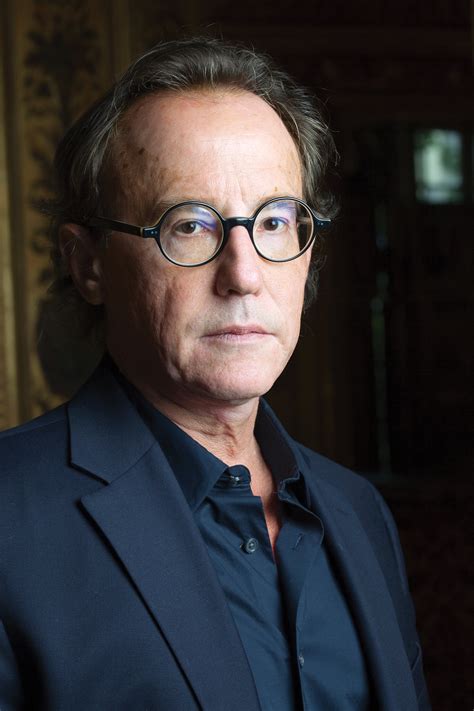Top 242 Cultivating Quotes & Sayings - Page 4
Explore popular Cultivating quotes.
Last updated on December 4, 2024.
Cultivating whatever gave pleasure to my senses was always the chief business of my life; I have never found any occupation more important. Feeling that I was born for the sex opposite mine, I have always loved it and done all that I could to make myself loved by it. I have also been extravagantly fond of good food and irresistibly drawn by anything which could excite curiosity.
The most difficult thing about living as a writer is precisely 'having to write.' Pretending to be a writer is easy. Living freely, reading many books, going on frequent trips, cultivating minor eccentricities... but genuinely being a writer is difficult, because you have to write something that will convince both yourself and readers.
I think that every guy who has come through New England would say that he gained a lot of knowledge and experience that made him a better football player. But they also learned what it means to be a better teammate, a better husband and a better father. I think cultivating that kind of atmosphere is something we take a lot of pride in here.
Investigation is a subtle process, requiring patience and fine analytical ability, as well as a skill in cultivating one's sources. When torture is condoned, these rare talented people leave the service, having been outstripped by less gifted colleagues with their quick-fix methods, and the service itself degenerates into a playground for sadists.
Being an elite performer on the playing field of life is not about being perfect. Rather, it is about cultivating a mental focus towards mastery in every area of your life. It is about commiting yourself, from the core of your heart, to manifest and polish your highest talents and become the person you are destined to be.
The secret of successfully giving yourself away lies not so much in calculated actions as in cultivating friendly, warm-hearted impulses. You have to train yourself to obey giving impulses on the instant -- before they get a chance to cool. When you give impulsively, something happens inside of you that makes you glow, sometimes for hours.
. . . Cultivating good humor may be helpful in finding our own identity. Young people who are trying to find out who they really are often have concerns as to their ability to meet and cope with the challenges that confront them and that lie ahead. They will find that it is easier to ride over the bumps and come quickly to their own identity if they cultivate the good humor that comes naturally. It is important that we all learn to laugh at ourselves.
The work of cultivating experiences called "peak experiences" or "mystic moments" or "breakthroughs" until they become more accessible is part of the essential nature of genuine spiritual discipline. These are moments, at the very least, of approaching the experiential verification that there does exist something Higher within and perhaps also outside of ourselves. Moments at the very least of approaching what the religions call God.
One of the most important things you can do is build an ecosystem of people around you who want to see you do well. That might be making appropriate introductions or providing mentorship or introducing others to key hires over time. It's not just what you can learn at your job before you set out on your own, but also thinking about how you're cultivating that ecosystem and keeping in touch with that group around you.
Our great mistake in education is ... the worship of book-learning-the confusion of instruction and education. We strain the memory instead of cultivating the mind. ... We ought to follow exactly the opposite course with children-to give them a wholesome variety of mental food, and endeavour to cultivate their tastes, rather than to fill their minds with dry facts.
Wholehearted living is about engaging in our lives from a place of
worthiness. It means cultivating the courage, compassion, and connection
to wake up in the morning and think, No matter what gets done and
how much is left undone, I am enough. It’s going to bed at night thinking,
Yes, I am imperfect and vulnerable and sometimes afraid, but that doesn’t
change the truth that I am also brave and worthy of love and belonging.
With intent to neither idolize nor demonize the man [Barack Obama], it seems fair and evident enough to say that the current president of America is not a leader whose way is that of violent public outbursts. It appears to be more that of a warrior-philosopher who practices the art of political persuasion by authoring acclaimed books, delivering well-crafted speeches, assembling unified coalitions, passing historic legislation, signing well-aimed executive orders, and cultivating a poised but accessible demeanor.
Happiness is the choice I make today. It does not rest on my circumstances, but on my frame of mind...In cultivating the habits of happiness, I attract the people and situations that match its frequency. I smile more often, give praise more often, give thanks more often, and am glad more often. For such is my choice today.
Cultivating care and concern for others gives rise to a kind of inner strength. No matter what difficulties or problems you face, in this wider context they’ll seem less significant and troubling to you. The inner strength, self-confidence and courage you gain by focussing on others’ needs instead of your own, brings with it a deep, calm sense of satisfaction.
I think that a young state, like a young virgin, should modestly stay at home, and wait the application of suitors for an alliance with her; and not run about offering her amity to all the world; and hazarding their refusal. Our virgin is a jolly one; and tho at present not very rich, will in time be a great fortune, and where she has a favorable predisposition, it seems to me well worth cultivating.
Summers was simply a master explainer, able to deftly boil down the complexities of economic and financial, and to put them in terms the non-expert could understand. He was brilliant at cultivating a sense of control, even as events spun far beyond what could be managed with any certainty. He could will into being the confidence that eluded others, those less self-assured and, maybe sensibly, on humbler terms with the world.
Modern anthropology ... opposes the utilitarian assumption that the primitive chants as he sows seed because he believes that otherwise it will not grow, the assumption that his economic goal is primary, and his other activities are instrumental to it. The planting and the cultivating are no less important than the finished product. Life is not conceived as a linear progression directed to, and justified by, the achievement of a series of goals; it is a cycle in which ends cannot be isolated, one which cannot be dissected into a series of ends and means.
Forest restoration is a challenging and complex undertaking of raising young trees, transplanting them, and then cultivating them year in, year out in the face of harsh challenges of nature; it is a gigantic nature transformation project to turn all the mountains of the country into 'treasure mountains,' into 'gold mountains.'
The routines of almost all famous writers, from Charles Darwin to John Grisham, similarly emphasise specific starting times, or number of hours worked, or words written. Such rituals provide a structure to work in, whether or not the feeling of motivation or inspiration happens to be present. They let people work alongside negative or positive emotions, instead of getting distracted by the effort of cultivating only positive ones. ‘Inspiration is for amateurs,’ the artist Chuck Close once memorably observed. ‘The rest of us just show up and get to work.
A love of reading is an acquired taste, not an instinctive preference. The habit of reading is formed in childhood; and a child's taste in reading is formed in the right direction or in the wrong one while he is under the influence of his parents; and they are directly responsible for the shaping and cultivating of that taste.
Psychoanalysis cannot be considered a method of education if by education we mean the topiary art of clipping a tree into a beautiful artificial shape. But those who have a higher conception of education will prize most the method of cultivating a tree so that it fulfils to perfection its own natural conditions of growth.
Paper is cheap, and authors need not now erase one book before they write another. Instead of cultivating the earth for wheat andpotatoes, they cultivate literature, and fill a place in the Republic of Letters. Or they would fain write for fame merely, as others actually raise crops of grain to be distilled into brandy.
Man is an evasive beast, given to cultivating strange notions about himself. He is humiliated by his simian ancestry, and tries to deny his animal nature, to persuade himself that he is not limited by its weaknesses nor concerned in its fate. And this impulse may be harmless, when it is genuine. But what are we to say when we see the formulas of heroic self-deception made use of by unheroic self-indulgence?
Gandhi, when he was on the salt march, had everyone singing the song of Rabindranath Tagore, which goes, 'Walk alone, walk alone...' Now there's some paradox in that, with a million people on the march! But he was cultivating the thought that each individual has dignity, and the dignity consists partly in the willingness to stand up to authority.
Over time, as the thinking mind begins to settle [through the practice of meditation], we’ll start to see our patterns and habits far more clearly. Sometimes this can be a painful experience. I can’t overestimate the importance of accepting ourselves exactly as we are right now, not as we wish we were or think we ought to be. By cultivating nonjudgmental openness to ourselves and to whatever arises, to our surprise and delight we will find ourselves genuinely welcoming the never-pin-downable quality of life, experiencing it as a friend, a teacher, and a support, and no longer as an enemy.
Another way to look at meditation is to view thinking itself as a waterfall, a cascading of thought. In cultivating mindfulness, we are going beyond or behind our thinking, much the way you might find a vantage point in a cave or depression in the rock behind a waterfall. We still see and hear the water, but we are out of the torrent.
More fundamental than religion is our basic human spirituality. We have a basic human disposition towards love, kindness and affection, irrespective of whether we have a religious framework or not. When we nurture this most basic human resource - when we set about cultivating those basic inner values which we all appreciate in others, then we start to live spiritually.
If we dedicate a certain amount of time each day to cultivating compassion or any other positive quality, we are likely to attain results, just like when we train the body... Meditation consists of familiarizing ourselves with a new way of being, of managing our thoughts and the way we perceive the world. Through the recent advances in neuroscience it is now possible to evaluate these methods and to verify their impact on the brain and body.
We should all develop the mind to rejoice in, praise and share in the gift of those who have artistic talents and a richness of heart, whether they achieve wide recognition or not. Cultivating such a beautiful mind is a very worthy effort. Culture and art are not just decorations. They are not just accessories. What matters is whether culture enriches the essential substance of our lives.
We are beset by problems and if we look for their source, we find they arise because of our selfishness, because we tend to pursue our own interests at the expense of others. Our various religious traditions exist to help us reduce these problems. They all teach ways to overcome suffering through cultivating love and compassion, tolerance, patience and contentment.
We have the power to defy the selfish genes of our birth and, if necessary, the selfish memes of our indoctrination. We can even discuss ways of deliberately cultivating and nurturing pure, disinterested altruism - something that has no place in nature, something that has never existed before in the whole history of the world. We are built as gene machines and cultured as meme machines, but we have the power to turn against our creators. We, alone on earth, can rebel against the tyranny of the selfish replicators.
In using the strong hand, as now compelled to do, the government has a difficult duty to perform. At the very best, it will by turns do both too little and too much. It can properly have no motive of revenge, no purpose to punish merely for punishment's sake. While we must, by all available means, prevent the overthrow of the government, we should avoid planting and cultivating too many thorns in the bosom of society.
...we should all fortify ourselves against the dark hours of depression by cultivating a deep distrust of the certainties of despair. Despair is relentless in the certainties of its pessimism. But we have seen again and again, from our own experience and others', that absolute statements of hopelessness that we make in the dark are notoriously unreliable. Our dark certainties are not sureties.
In their struggle for the ethical good, teachers of religion must have the stature to give up the doctrine of a personal god, that is, give up that source of fear and hope which in the past placed such vast power in the hands of priests. In their labors they will have to avail themselves of those forces which are capable of cultivating the Good, the True, and the Beautiful in humanity itself. This is, to be sure, a more difficult but an incomparably more worthy task.
The more adept we become at cultivating an altruistic attitude, the happier we will feel and the more comfortable will be the atmosphere around us. But if our emotions fluctuate wildly and we easily give in to hatred and jealousy, even our friends will avoid us. So even for people with no spiritual beliefs, it is important to have a peaceful mind.
A belief, however necessary it may be for the preservation of a species, has nothing to do with truth. The falseness of a judgment is not for us necessarily an objection to a judgment. The question is to what extent it is life-promoting, life-preserving, species preserving, perhaps even species cultivating. To recognize untruth as a condition of life--that certainly means resisting accustomed value feelings in a dangerous way; and a philosophy that risks this would by that token alone place itself beyond good and evil.
It was with the last revolution and the coming of INGSOC (Inglish/English Socialism) that the latest High learnt how to keep their position permanently - by cultivating ignorance among the other classes and by constantly surveying them through the Thought Police. Part of this strategy included the maintenance of a state of continual warfare, which Goldstein discussed in the third chapter. The three major powers were not fighting this perpetual war for victory; they were fighting to keep a state of emergency always present as the surest guarantee of authoritarianism.
Buddhist words such as compassion and emptiness don't mean much until we start cultivating our innate ability simply to be there with pain with an open heart and the willingness not to instantly try to get ground under our feet. For instance, if what we're feeling is rage, we usually assume that there are only two ways to relate to it. One is to blame others. Lay it all on somebody else; drive all blames into everyone else. The other alternative is to feel guilty about our rage and blame ourselves.
These beings have no other status, but that of cultivating the idea of beauty in their own persons, of satisfying their passions, of feeling and thinking.... Contrary to what many thoughtless people seem to believe, dandyism is not even an excessive delight in clothes and material elegance. For the perfect dandy, these things are no more than the symbol of the aristocratic superiority of his mind.
Aware of the suffering caused by the destruction of life, I am committed to cultivating compassion and learning ways to protect the lives of people, animals, plants, and minerals. I am determined not to kill, not to let others kill, and not to support any act of killing in the world, in my thinking, and in my way of life.
Fearlessness may be a gift but perhaps more precious is the courage acquired through endeavour, courage that comes from cultivating the habit of refusing to let fear dictate one's actions, courage that could be described as 'grace under pressure' - grace which is renewed repeatedly in the face of harsh, unremitting pressure.
Cultivating relationships with people who've achieved what you want to achieve makes the path fuller and more fun. You don't know everything, and that is so okay, because there are many people who want to help you along your journey. I used to think people above me might get jealous because I wanted to do what they did. But no, people are much nicer than that.
The price that must be paid for mastery is discipline. No one achieves lasting success without it. So from the moment you awake each day, devote yourself to the perfection of whatever you pursue. Do this and you will achieve self-mastery. Achieve self-mastery and you will have the makings of a great leader... Discipline is all about cultivating powerful habits that become part of your lifestyle.
Poetry is the essence of everything, and it’s through deep contact with reality and living fully that you reach poetry. Very often I see photographers cultivating the strangeness or awkwardness of a scene, thinking it is poetry. No. Poetry is two elements which are suddenly conflict — a spark between two elements. But it’s given very seldom, and you can’t look for it. It’s like if you look for inspiration. No, it just comes by enriching yourself and living.
Within this arena, which grows more stable night after day, generations work and love and hope and vanish. New generations tread on the corpses of their fathers, continue the work above the abyss and struggle to tame the dread mystery. How? By cultivating a single field, by kissing a woman, by studying a stone, an animal, an idea.
The difficulty in our education up till now lies, for the most part, in the fact that knowledge did not refine itself into will, to application of itself, to pure practice. The realists felt the need and supplied it, though in a most miserable way, by cultivating idea-less and fettered "practical men." Most college students are living examples of this sad turn of events. Trained in the most excellent manner, they go on training; drilled they continue drilling.
I rather shared Nietzsche's conception of the kind of individual that an ideal education should be cultivating. 'Authenticity' is not Nietzsche's term, but as used by some existentialists, it nicely captures what Nietzsche admired - the resolve of an individual person to forge his or her own 'table of values', to be emancipated from strait-jacketing conventions, traditions, and ideologies. As embodied in the 'Overman', authenticity is the antidote to 'bad' nihilism.
No one can know how long this dumbing-down of American religion will persist. But so long as it does, citizens should probably be more vigilant about policing the public square, not less so. . . . [Y]ou cannot sustain liberal democracy without cultivating liberal habits of mind among religious believers. That remains true today, both in Baghdad and in Baton Rouge.
I'm convinced true fulfillment is living in God's world one day at a time, savoring it, leaving today's disapointments behind and borrowing no troubles from tomorrow. It's done not only by accepting life, fever, and things that go bump in the night, but also by cultivating love and new and old friendships, and especially by finding a new work or project that makes it exciting just to get up in the morning.
On the whole, my respect for my fellow-men, except as one may outweigh a million, is not being increased these days.... Such do not know that like the seed is the fruit, and that, in the moral world, when good seed is planted, good fruit is inevitable, and does not depend on our watering and cultivating; that when you plant, or bury, a hero in his field, a crop of heroes is sure to spring up. This is a seed of such force and vitality, that it does not ask our leave to germinate.
With empathy you know in your heart that it's not a sign of weakness to attempt to understand that the people we call terrorists have placed the same label on us, and that the use of force will create a counter force, a never-ending saga of killing and hate. Ending war involves cultivating empathy in our policies and the love of God in our hearts. As the Native Americans reminded us: No tree has branches so foolish as to fight among themselves.
The person who wins the Nobel Prize is not the person who read the most journal articles and took the most notes on them. It's the person who knew what to look for. And cultivating that capacity to seek what's significant, always willing to question whether you're on the right track - that's what education is going to be about, whether it's using computers and the Internet, or pencil and paper, or books.
When Isaiah predicted that spears would become pruning hooks, that's a reference to cultivating. Pruning and trimming and growing and paying close attention to the plants and whether they're getting enough water and if their roots are deep enough. Soil under the fingernails, grapes being trampled under bare feet, fingers sticky from handling fresh fruit. It's that green stripe you get around the sole of your shoes when you mow the lawn. Life in the age to come. Earthy.


